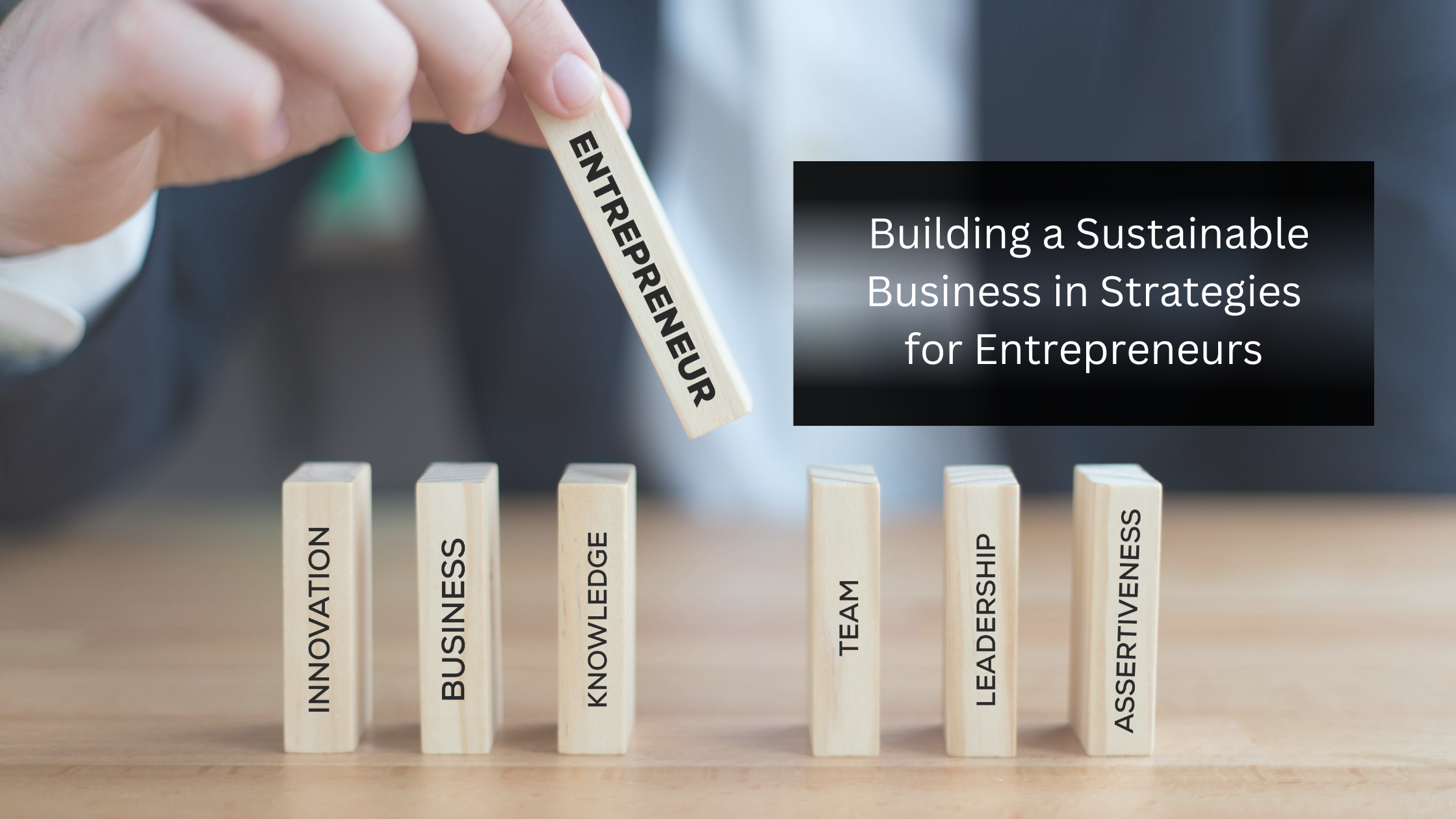Creating a sustainable business isn’t just about profitability; it’s about building a company that endures over the long term, balancing economic success with social and environmental responsibility. Here are key strategies for entrepreneurs to build a sustainable business:
1. Develop a Clear Vision and Mission
Vision and Mission: Clearly define your business’s purpose and long-term goals. A strong vision and mission statement will guide your strategic decisions and inspire your team.
2. Focus on Sustainable Products and Services
Eco-Friendly Offerings: Develop products or services that minimize environmental impact. This could mean using sustainable materials, reducing waste, or creating energy-efficient solutions.
3. Implement Sustainable Practices
Operations: Integrate sustainability into your operations. This can include reducing energy consumption, minimizing waste, and sourcing materials responsibly.
4. Engage in Ethical Sourcing
Supply Chain: Ensure that your suppliers adhere to ethical and sustainable practices. This includes fair labor practices, environmental standards, and sustainable sourcing.
5. Foster a Culture of Sustainability
Corporate Culture: Cultivate a workplace culture that prioritizes sustainability. Encourage employees to adopt eco-friendly practices and involve them in sustainability initiatives.
6. Leverage Technology for Efficiency
Tech Integration: Utilize technology to improve efficiency and reduce your environmental footprint. This could include using energy-efficient machinery, automating processes, or implementing digital tools to reduce paper use.
7. Engage with Stakeholders
Stakeholder Involvement: Regularly communicate with stakeholders, including employees, customers, suppliers, and the community, about your sustainability efforts and goals. Engagement fosters transparency and builds trust.
8. Measure and Report Sustainability Performance
KPIs and Reporting: Establish key performance indicators (KPIs) to track your sustainability performance. Regularly report on your progress to stakeholders to maintain accountability and transparency.
9. Pursue Certifications and Standards
Certifications: Obtain relevant sustainability certifications such as B Corp, ISO 14001, or Fair Trade. These certifications demonstrate your commitment to sustainability and can enhance your brand reputation.
10. Plan for Long-Term Resilience
Resilience: Develop strategies to ensure your business can withstand economic, environmental, and social challenges. This includes diversifying your revenue streams, building strong relationships with stakeholders, and maintaining financial prudence.
11. Innovate Continuously
Innovation: Continuously seek innovative ways to improve your products, services, and operations. Stay abreast of industry trends and emerging technologies that can enhance your sustainability efforts.
12. Educate and Advocate
Education and Advocacy: Educate your customers and the public about the importance of sustainability. Advocate for sustainable practices within your industry and community.
Conclusion
Building a sustainable business requires a holistic approach that integrates economic, social, and environmental considerations. By developing a clear vision, focusing on sustainable practices, engaging stakeholders, and fostering a culture of innovation and resilience, entrepreneurs can create businesses that not only succeed financially but also contribute positively to society and the planet. Sustainability is not just a trend but a fundamental shift towards responsible business practices that ensure long-term success and impact.Top of Form
Bottom of Form

Leave a Reply